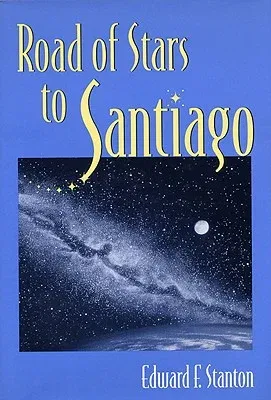His life was a shambles, he felt exhausted by work, his marriage was
foundering. So he prepared a backpack, found a walking staff and
departed on a 30-day, 500-mile journey along the Camino de Santiago, the
route across northern Spain that has been followed by pilgrims for at
least a thousand years. He knew what he was fleeing from, not what he
was seeking. The Camino would teach him that and many other things.
Walking by day, he slept in pilgrims' hospices at night, in boarding
houses, in abandoned schools and churches or under the stars. As he
moved forward in space, he seemed to be going backwards into time. He
went through country where villages and people have barely changed since
the Middle Ages, landscapes that James Michener has called the best in
Spain and some of the finest in the world. Although he began his trip
alone, Edward F. Stanton soon discovered that pilgrimage means
fellowship as well as solitude: his journey coincided with the modern
revival of the Camino de Santiago. Along the way he met a Spanish
astrologer who taught him to find his own rhythm in walking, the abbess
of a convent who offered him sage advice for the road, a pair of French
women in search of a new life, peasants and shepherds with the knowledge
of centuries. Road of Stars to Santiago is a beautifully written story
that blends personal experience with folklore, legend, the wisdom of old
chronicles and canny observations of life in modern Spain. It is at once
a travel memoir, a picaresque adventure, a modern quest, a rite of
passage and initiation into what has been called "the premier cultural
route of Europe."

